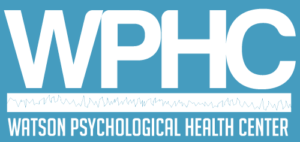Depression Treatment
Depression Feels Hopeless at Times
From time to time, we can all feel sad, but depression is different than feeling sad from time to time.
“An estimated 3.8% of the population experience depression, including 5% of adults (4% among men and 6% among women), and 5.7% of adults older than 60 years. Approximately 280 million people in the world have depression (1). Depression is about 50% more common among women than among men. Worldwide, more than 10% of pregnant women and women who have just given birth experience depression (2). More than 700,000 people die due to suicide every year. Suicide is the fourth leading cause of death in 15–29-year-olds.”
https://www.who.int/news-room/fact-sheets/detail/depression

Depression can consume your thoughts and your life before you realize it. Depression is a common but serious mental health disorder that negatively impacts thoughts, feelings, and behavior. Symptoms of depression will most likely not get better until you seek help; negative thoughts can feel like they interfere with day-to-day functioning and, with time, can even begin to affect your physical health.
Three of the most common feelings associated with depression are:
Persistent sad, isolated, or “empty” feelings. This will often lead to other feelings like:
We tend to dismiss many of our signs as stress, but depression ultimately catches up with you and becomes more than you can handle independently.
With brain maps, WPHC will work to see what type of mood issues the brain is presenting. Often, depression comes coupled with anxiety, but not always.
So call today to get started.
All Treatments

We can compare your brain
before and after
Brain mapping is a technique that helps in identifying the areas of the brain that may be affected by depression. It is a non-invasive process that involves measuring the electrical activity of the brain using electrodes placed on the scalp. Before brain mapping, individuals with depression may feel lost and unsure of what is happening in their brain. After brain mapping, they can have a better understanding of how their brain is functioning and what areas may need treatment. Brain mapping can also help in monitoring the effectiveness of treatment over time, as changes in brain activity can indicate improvements in mood and overall mental health.

